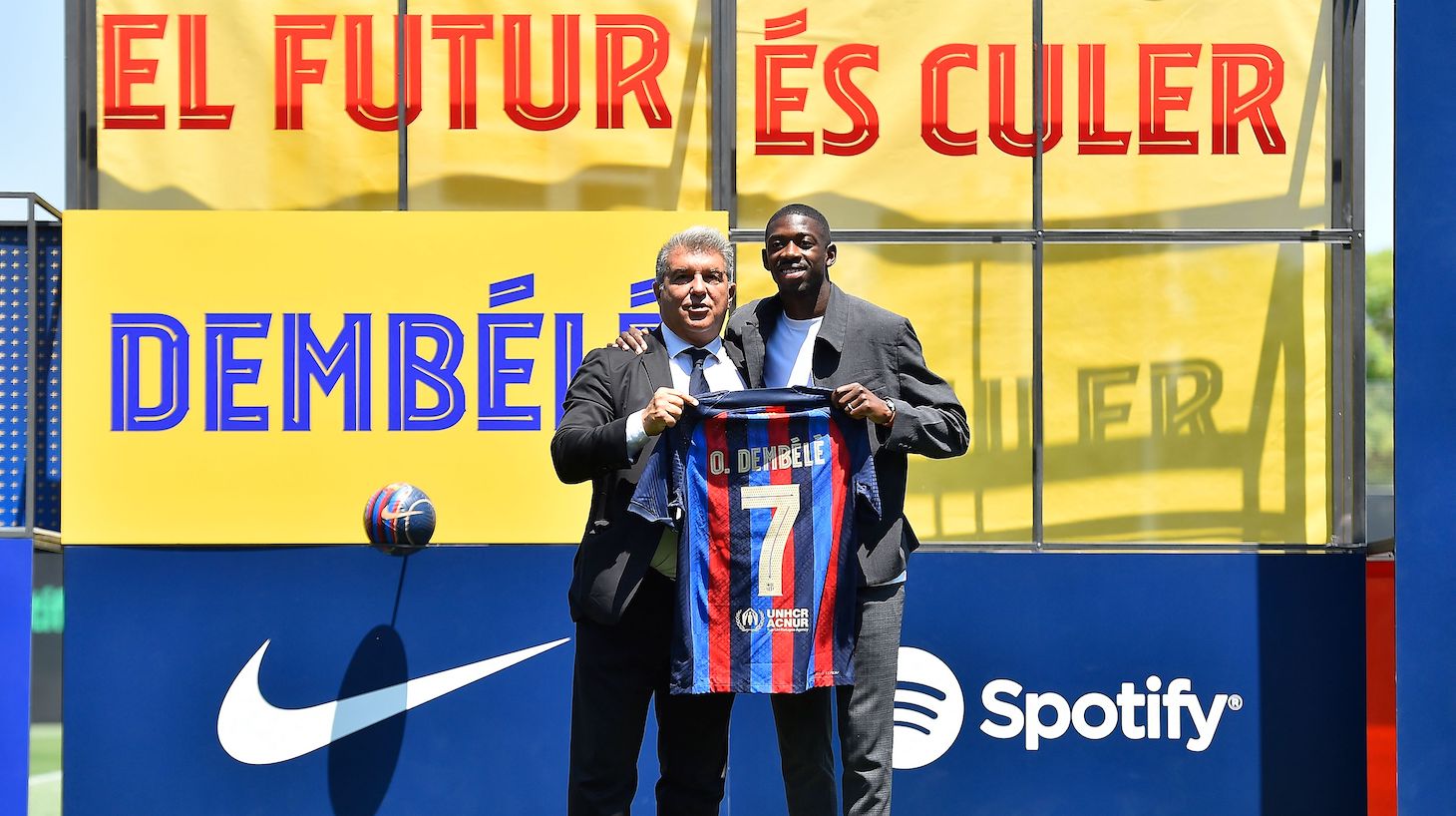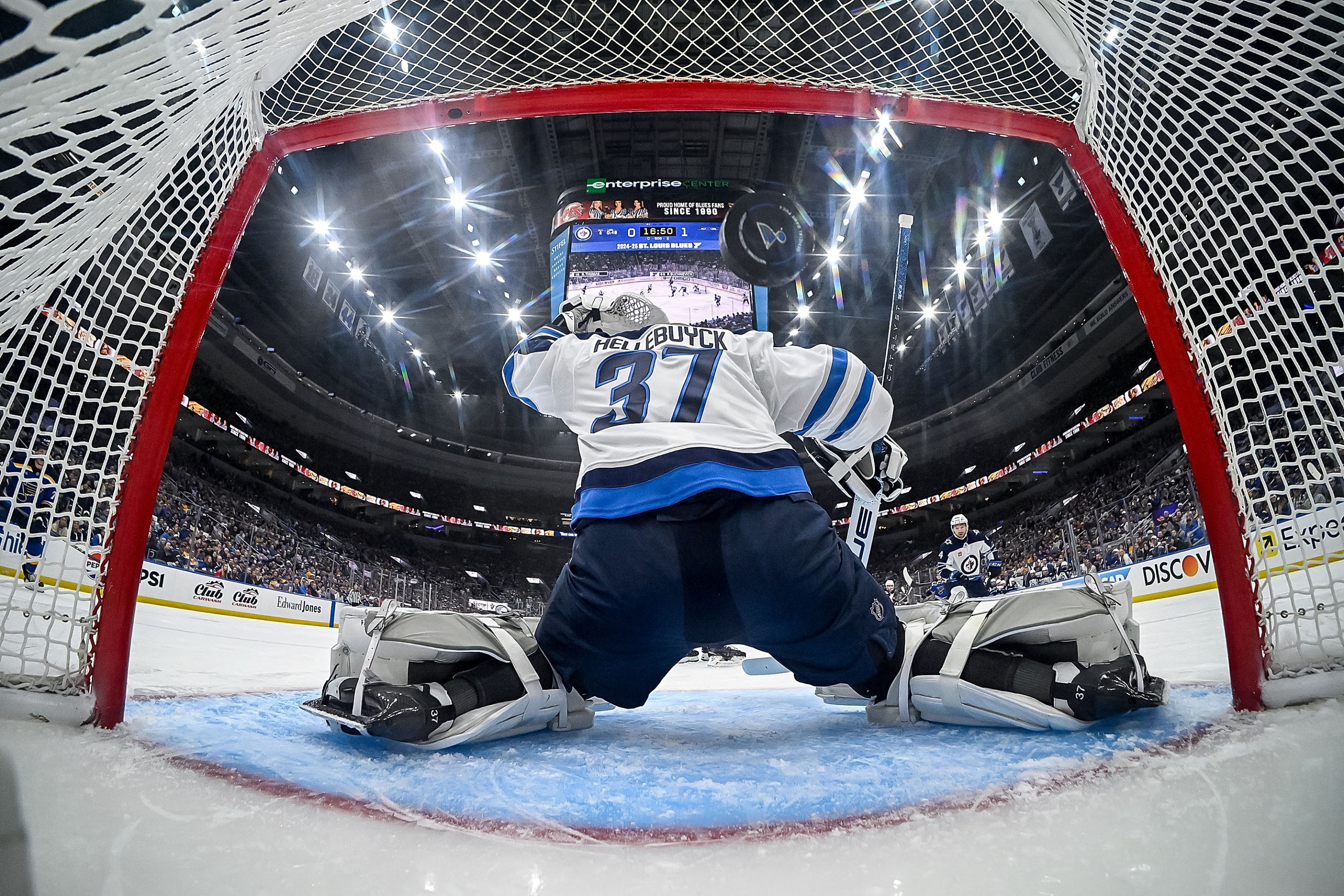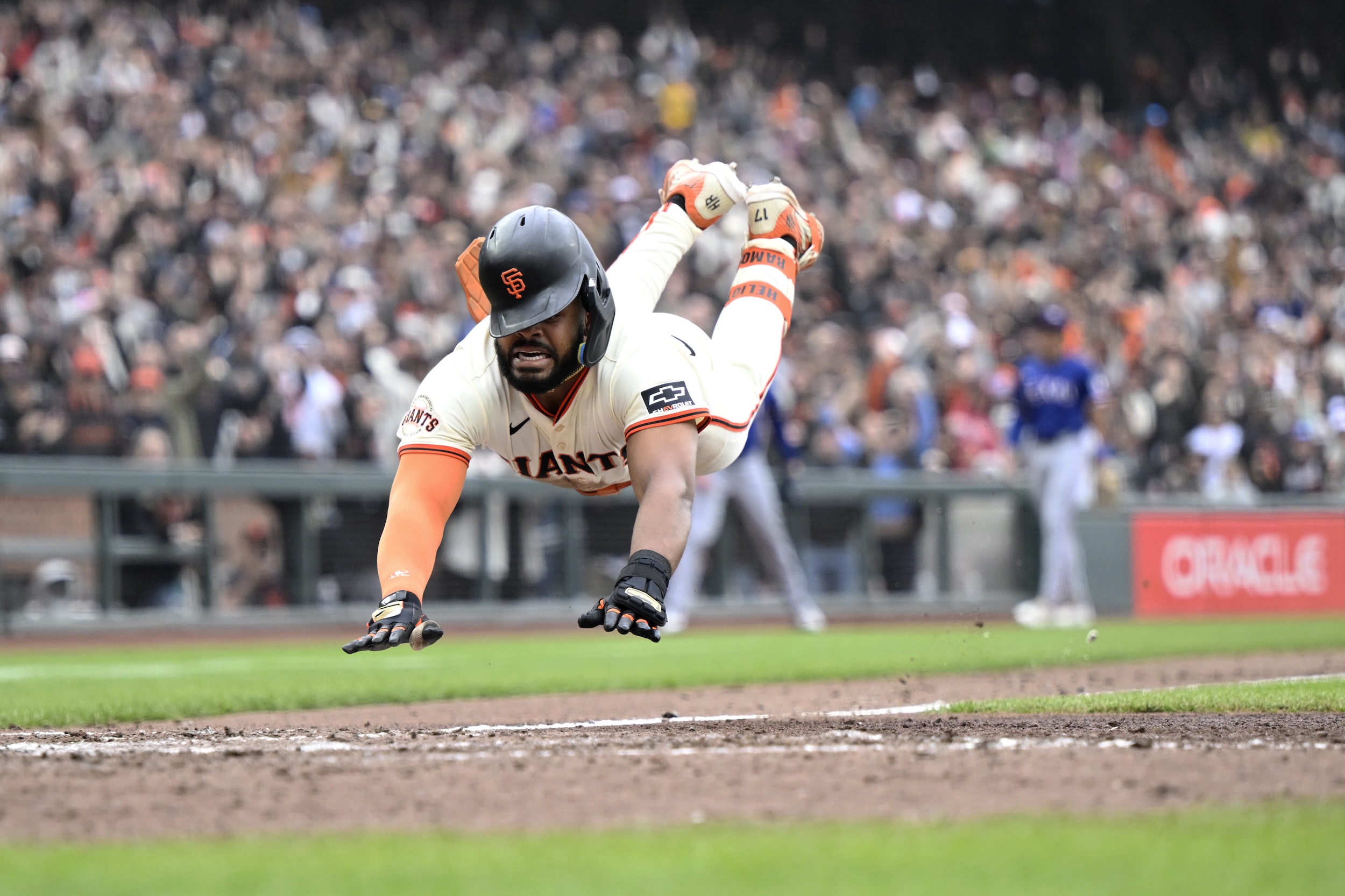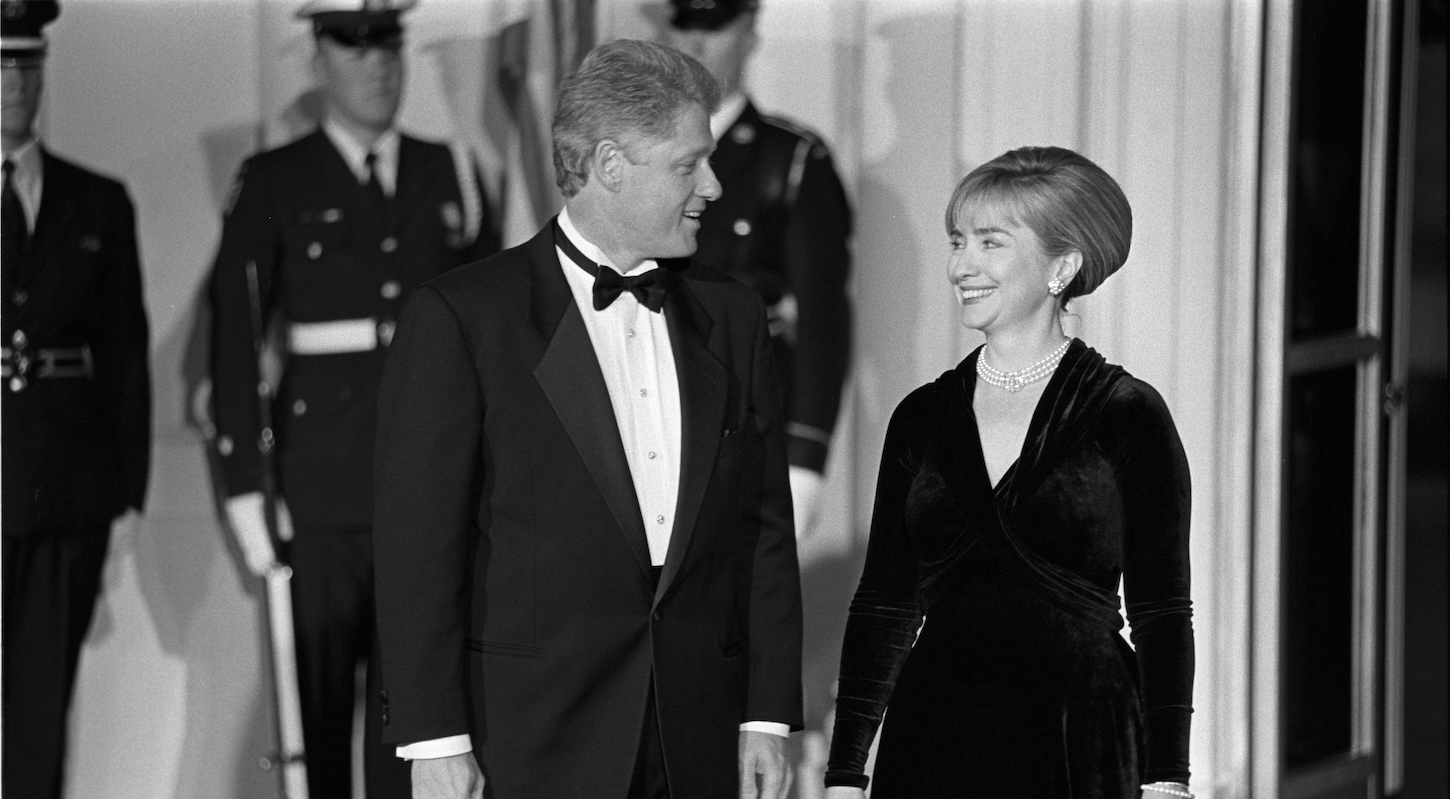It was almost a year ago to the day that the depths of Barcelona's financial ruin were made painfully obvious when the club was forced to part ways with Lionel Messi. Messi's exit seemed to symbolize not only the end of the greatest era in club history, but also the dawn of one of worrying uncertainty. What even is Barcelona without Messi, especially when it has no money to sign anything close to an equivalent replacement? How long will it take for the club to right its finances and once again assemble a squad worthy of Barcelona's lofty ambitions? Will the club ever get back to where it was before, and what even will being "back" look like by the time it happens?
A year later, we're starting to get some answers. The most surprising one is this: Barcelona is in some ways already back, at least in terms of financial might. Last week Barcelona announced the signing of Brazilian winger Raphinha, who the club brought in from Leeds United for a cool €60 million. Over the weekend, Barça followed that up with the announced addition of Polish striker Robert Lewandowski, coming from Bayern Munich for some €45 million. And the frenzy isn't over. Reports say the Catalans currently lead the €60 million race for French defender Jules Koundé, and also that they are closely eying the future of Manchester City's Portuguese midfielder Bernardo Silva. Many had Barcelona penned in for years of financial austerity as it underwent the slow and arduous process of paying off debts and regrowing its bank account. Instead, the club has pulled it off within a single year.
Such an immediate change of fortunes is not without costs. Barcelona managed the financial turnaround by selling off 25 percent of its future broadcast TV rights for the next 25 years. Because TV rights make up a large chunk of sports teams' revenue, this qualifies as an enormous bet on the present at the expense of the future. The wager does have its logic. The club's leadership must be concerned with the knowledge that any time spent out of the soccer world's spotlight makes it that much more difficult to get it back. So while a more patient and organic approach to fiscal recovery might be the more sound path economically, there's a real risk that by the time the books were in order, other clubs would've replaced Barcelona in glamor, prestige, finances, and success, and there would be no guarantee that Barça could regain the position it's had for the past two decades, amongst the elite of the elite. Just ask AC Milan how hard it is to get back to the top after a few years in the wilderness. By selling a portion of its TV rights so that it can shell out hundreds of millions of Euros in transfer fees and contracts right now, Barça is attempting to protect the future by fortifying the present.
But the risks of this strategy are evident. Mortgaging the future to build the strongest possible current roster is exactly how Barcelona got into it this financial mess in the first place. With the justification of getting the most out of the aging golden generation led by Messi, Barcelona in previous seasons handed out unsustainably large contracts to its own declining veterans, went out and bought more declining veterans to flesh out the roster, and kept spending and spending and spending on expensive attackers with seemingly no idea or plan for how they might fit. Many of this summer's achieved and rumored additions look smart on paper—even at those prices, signing Raphinha and possibly Koundé would be practically the ideal way to address two of the squad's biggest needs—though others (34-year-old Lewandowski, 32-year-old César Azpilicueta, 31-year-old Marcos Alonso) bring with them concerning echoes of past mistakes. Because of its status as a financial juggernaut, Barcelona just about got away with its terrible squad planning and finance minding in the final years of the Messi era, right up until it no longer could. The stakes this summer are even higher, because this time Barcelona literally cannot afford for these bets to fail.
As a fan of Barcelona, it is of course exciting to see the club once again making big moves in the market. I thought it would be a long while before I'd see a Barcelona capable of pipping the likes of Chelsea to highly coveted players, so to find the club there again just one year after the financial fiasco of last summer is a welcome surprise. But there is still something unsatisfying about it, something worrying about how the club is being run.
The financial crisis has already claimed Messi, the greatest and most iconic player in Barcelona's history. It also led to the unfair trashing of Ousmane Dembélé—who, in an unexpected turn of events, has actually re-signed with Barcelona recently, making the club's coordinated campaign to turn the fans against him last winter even less forgivable. An even worse campaign is currently being waged against Frenkie de Jong. The club is shamelessly trying to force out the Dutchman, who by every report only wants to stay in Barcelona and be a part of the success that appears to be on the horizon. Barça has spent months negotiating with Manchester United on a de Jong sale, has leaked misleading information about needing the midfielder to leave for the club's economic stability, and has publicly lied about all of it, claiming that the player who they obviously are trying to sell is not for sale. The impression you get is that Barça wants de Jong to leave, but also wants the sale to look like his fault. It's a gross way to treat a player who ostensibly is one of the cornerstones of the club's project.
Messi's departure was awful, but in a way it was also liberating. No longer would Barcelona have to slavishly focus on the immediate present, and instead it could go about designing for itself whatever future it wanted. The future I hoped for was one built around the large number of cool and promising young players, guys like Pedri and Ansu Fati and Gavi and de Jong and Ferran Torres, a Barcelona of cultivation and camaraderie, a Barcelona that trusted those who trusted it, a Barcelona that, in relative terms, might struggle while those players grew, but when the eventual triumph came, it would taste all the sweeter. In that vision, the new Barcelona might've been lesser than the one of the recent past, but it might've also been healthier, more holistic, more worthy of that word used to describe the connection sports can engender between a team, the people who play, and the people who watch: love. A Barcelona, to use a hackneyed phrase, that is more than a club.
Instead, this is the Barcelona that has returned. Two of this summer's additions—Raphinha and Andreas Christensen—have described joining Barça as the fulfillment of their childhood dreams. A few years ago, Dembélé and de Jong said much the same. Barcelona remains one of the moldering limbs attached to the zombie Super League. That attachment is reportedly why Roma backed out of a preseason friendly with Barcelona a couple weeks ago. With Lewandowski, Raphinha, Dembélé, Christensen, Franck Kessié, Koundé, Bernardo, Azpilicueta, and whoever else does or doesn't join the squad this season, Barcelona is set up well to compete for the big titles right away. Whether everything it took to get there qualifies as progress is something each person will have to decide for themselves.






